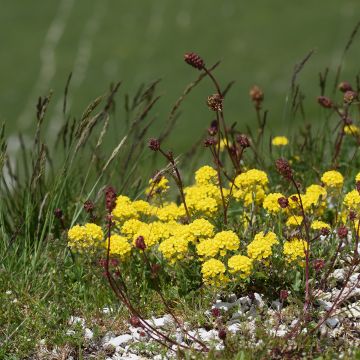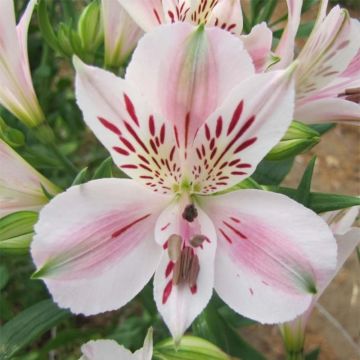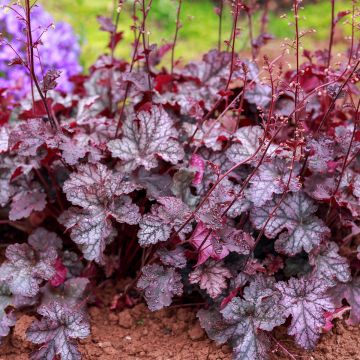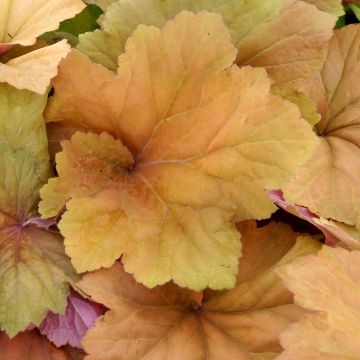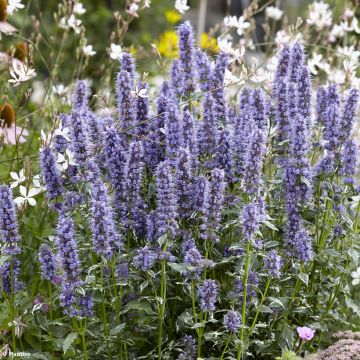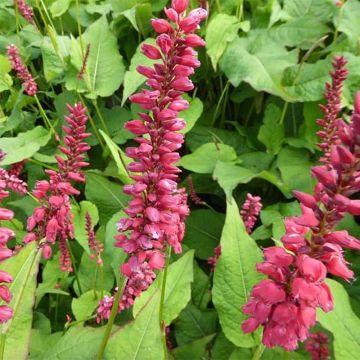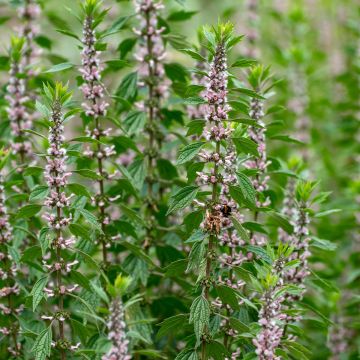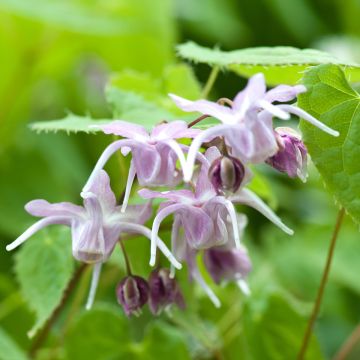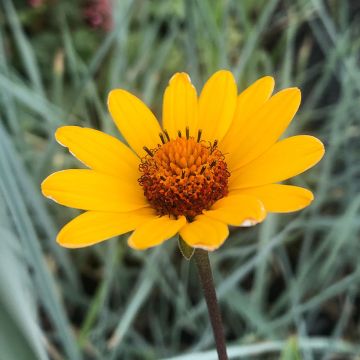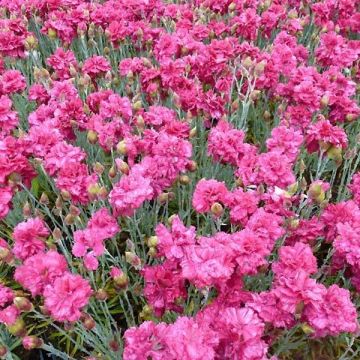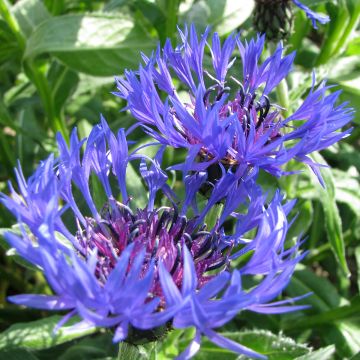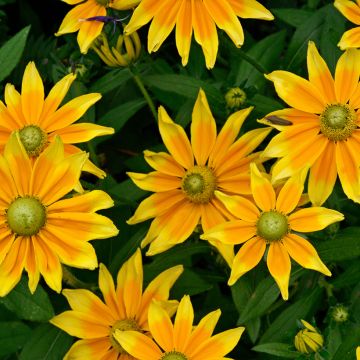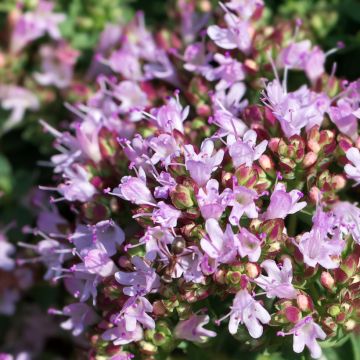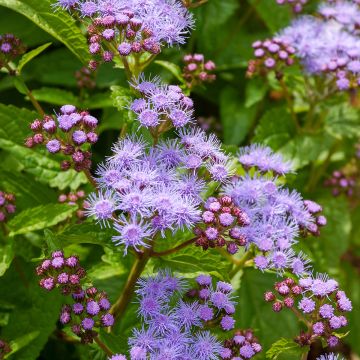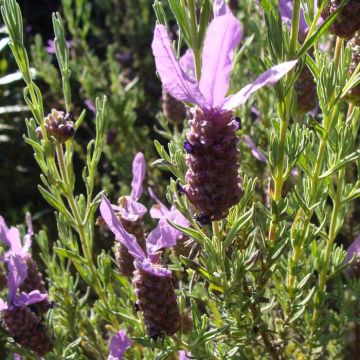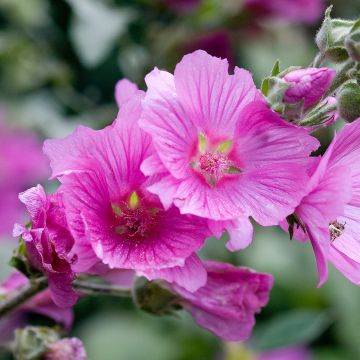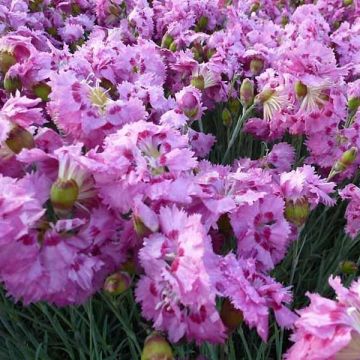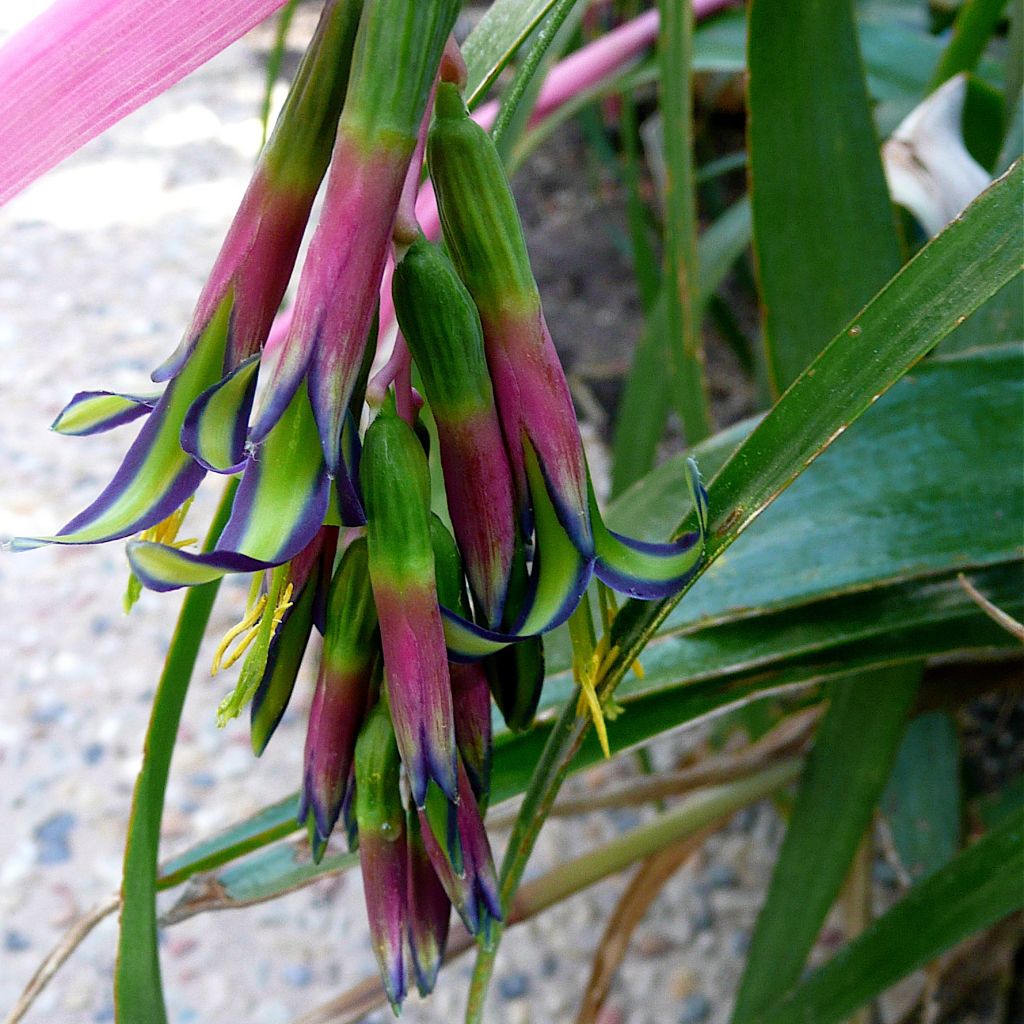

Billbergia nutans - Billbergia à fleurs penchées.
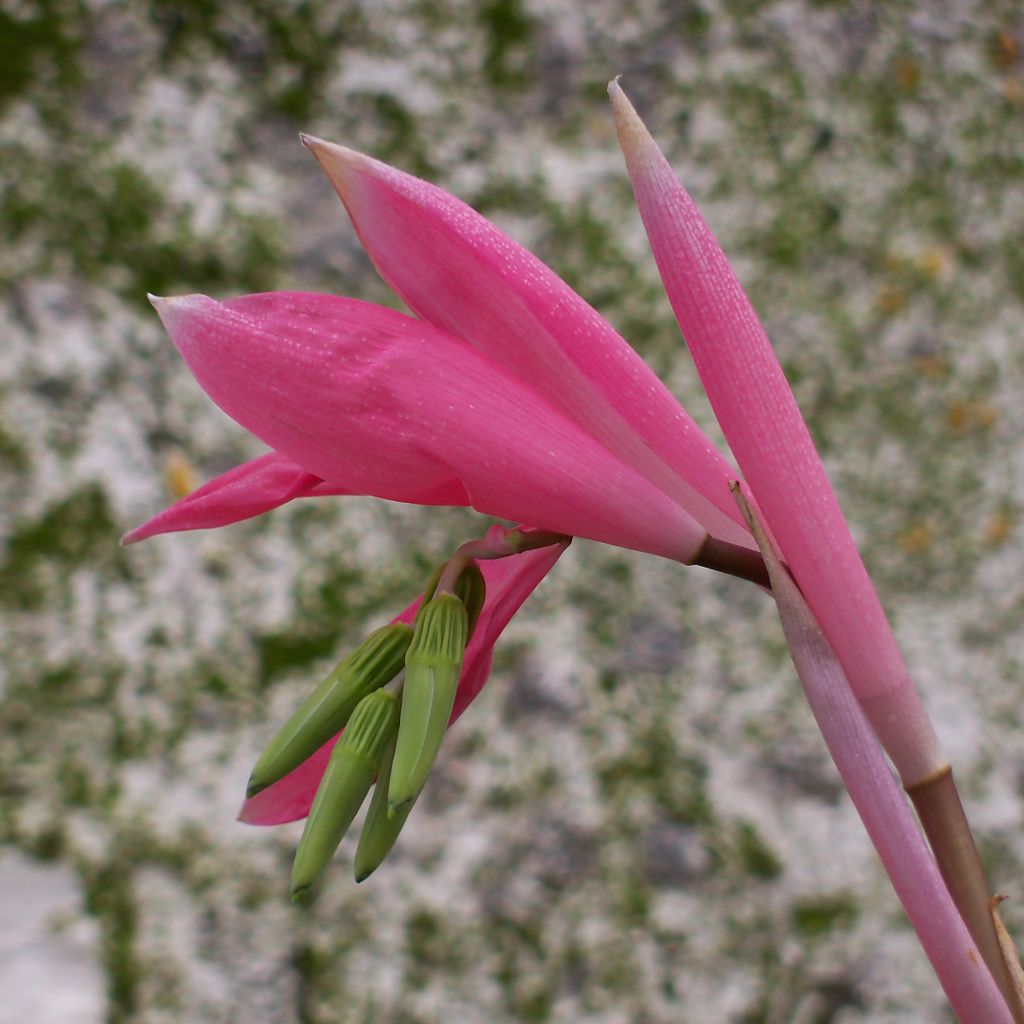

Billbergia nutans - Billbergia à fleurs penchées.
Billbergia nutans
Billbergia nutans
Queen's Tears, Friendship Plant, Octopus Plant
Beautiful plant received, floral stems are already in preparation at the base of the "funnel".
Yannick , 24/01/2025
This item cannot be shipped to the selected country
Delivery charge from €5.90
Delivery charge from €5.90
More information
Schedule delivery date,
and select date in basket
This plant carries a 12 months recovery warranty
More information
We guarantee the quality of our plants for a full growing cycle, and will replace at our expense any plant that fails to recover under normal climatic and planting conditions.
From €5.90 for pickup delivery and €6.90 for home delivery
Express home delivery from €8.90.
From €5.90 for pickup delivery and €6.90 for home delivery
Express home delivery from €8.90.
Does this plant fit my garden?
Set up your Plantfit profile →
Description
Billbergia nutans is a tender perennial plant with a very exotic appearance, which can be grown in large pots and stored indoors during winter, or planted in the ground in our mildest regions. This original and refined plant offers abundant flowering in summer. The inflorescences, in trailing clusters, emerge from beautiful pink bracts in an unlikely mix of pink, pale green and navy blue. The plant forms dense clumps that expand over time. It thrives in filtered light, planted in well-drained soil, even occasionally dry.
Billbergia nutans or Queen's Tears belongs to the Bromeliad family, so it is a cousin of the pineapple. This botanical species, which tolerates light frost and sun, is native to southern Argentina and Brazil. The plant develops slowly, with basal leaves that spread in width and regularly produce offsets. The abundant flowering usually takes place in summer, from June to September. The inflorescences, which can reach a height of 50 to 60cm (20 to 24in), emerge from rosettes of leaves that will then disappear. Each flower stalk is adorned with several large fuchsia pink bracts. They release an arched spike adorned with tube-shaped flowers, pink at the base, ending with striped petals of green and blue. Curved outward, they reveal long yellow stamens that add a touch of warm colour. The sword-shaped leaves are coloured in a glossy dark green, tinged with olive green. Arranged in a rosette, they form a hollow in the centre that serves as a water reservoir in nature. The leaves persist in mild climates, on a plant that is hardy up to about -5°C (23°F).
This Billbergia can be easily grown on a terrace, where it will thrive in a large pot filled with compost, to be stored in a greenhouse or conservatory to protect it from severe frost. It is undoubtedly one of the most elegant and lightweight Billbergia species, with a tousled habit reminiscent of certain grasses, and a delicate flowering display in technicolour. In our mildest regions, it can be planted as a standalone specimen in the ground, on a neutral-coloured mulch, or planted among large stones in a shaded rockery in a protected position, or even paired with sedges or dead nettles on the edge of a woodland.
Report an error about the product description
Billbergia nutans in pictures
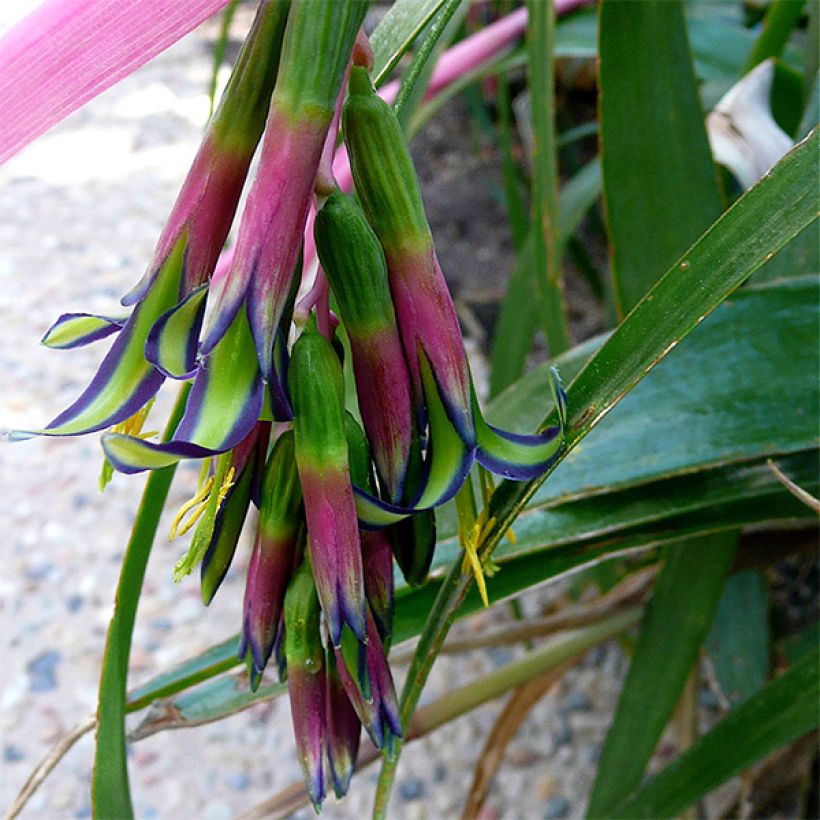

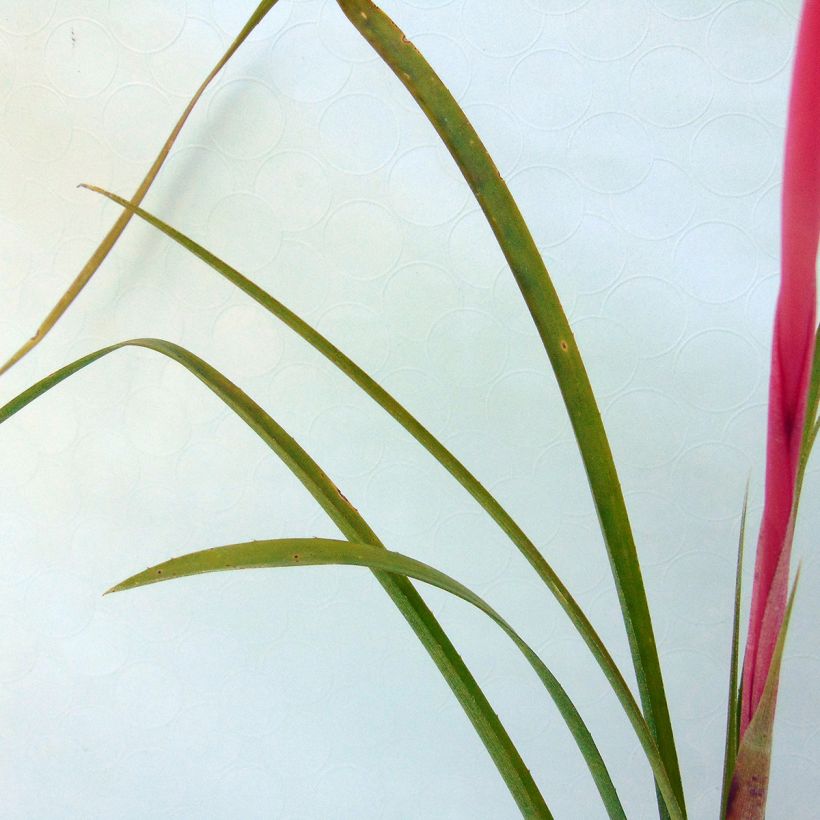

Flowering
Foliage
Plant habit
Botanical data
Billbergia
nutans
Bromeliaceae
Queen's Tears, Friendship Plant, Octopus Plant
South America
Other Perennials A to Z
Planting and care
Billbergia nutans is easily grown indoors, in a house or apartment. It appreciates a bright exposure, but not direct sunlight, except for the morning or evening sun in cool regions. The plant shows slow growth, but becomes magnificent when allowed to invade a large pot. Sometimes it takes 3 years before its first flowering. Once in bloom, the rosette at the base of the flower stalk dies completely naturally, no need to panic, numerous shoots ensure the plant's longevity. As root development is quite limited, its cultivation does not necessarily require a large container, except for aesthetic and overall balance.
Prefer a well-draining and light, humus-rich, coarse and non-calcareous substrate. A mixture of pine bark, blonde peat and compost will work well. Billbergia nutans appreciates regular watering with rainwater or non-calcareous water. The soil should not dry out completely between each watering during the summer, but only on the surface. On the other hand, rainwater that the plant retains in its reservoirs can be slightly enriched with Bromeliad fertilizer. In winter, when the temperature drops below 8°C (46.4°F), watering should be spaced out: the substrate should dry out between each water supply.
The cultivation of this Billbergia nutans can be attempted in open ground all year round, as some plants have apparently survived frosts of around -10°C (14°F) in dry soil. A plant protected from rain in winter, for example by a roof, will withstand the cold better.
Planting period
Intended location
Care
-
, onOrder confirmed
Reply from on Promesse de fleurs
Summer flowering perennials
Haven't found what you were looking for?
Hardiness is the lowest winter temperature a plant can endure without suffering serious damage or even dying. However, hardiness is affected by location (a sheltered area, such as a patio), protection (winter cover) and soil type (hardiness is improved by well-drained soil).

Photo Sharing Terms & Conditions
In order to encourage gardeners to interact and share their experiences, Promesse de fleurs offers various media enabling content to be uploaded onto its Site - in particular via the ‘Photo sharing’ module.
The User agrees to refrain from:
- Posting any content that is illegal, prejudicial, insulting, racist, inciteful to hatred, revisionist, contrary to public decency, that infringes on privacy or on the privacy rights of third parties, in particular the publicity rights of persons and goods, intellectual property rights, or the right to privacy.
- Submitting content on behalf of a third party;
- Impersonate the identity of a third party and/or publish any personal information about a third party;
In general, the User undertakes to refrain from any unethical behaviour.
All Content (in particular text, comments, files, images, photos, videos, creative works, etc.), which may be subject to property or intellectual property rights, image or other private rights, shall remain the property of the User, subject to the limited rights granted by the terms of the licence granted by Promesse de fleurs as stated below. Users are at liberty to publish or not to publish such Content on the Site, notably via the ‘Photo Sharing’ facility, and accept that this Content shall be made public and freely accessible, notably on the Internet.
Users further acknowledge, undertake to have ,and guarantee that they hold all necessary rights and permissions to publish such material on the Site, in particular with regard to the legislation in force pertaining to any privacy, property, intellectual property, image, or contractual rights, or rights of any other nature. By publishing such Content on the Site, Users acknowledge accepting full liability as publishers of the Content within the meaning of the law, and grant Promesse de fleurs, free of charge, an inclusive, worldwide licence for the said Content for the entire duration of its publication, including all reproduction, representation, up/downloading, displaying, performing, transmission, and storage rights.
Users also grant permission for their name to be linked to the Content and accept that this link may not always be made available.
By engaging in posting material, Users consent to their Content becoming automatically accessible on the Internet, in particular on other sites and/or blogs and/or web pages of the Promesse de fleurs site, including in particular social pages and the Promesse de fleurs catalogue.
Users may secure the removal of entrusted content free of charge by issuing a simple request via our contact form.
The flowering period indicated on our website applies to countries and regions located in USDA zone 8 (France, the United Kingdom, Ireland, the Netherlands, etc.)
It will vary according to where you live:
- In zones 9 to 10 (Italy, Spain, Greece, etc.), flowering will occur about 2 to 4 weeks earlier.
- In zones 6 to 7 (Germany, Poland, Slovenia, and lower mountainous regions), flowering will be delayed by 2 to 3 weeks.
- In zone 5 (Central Europe, Scandinavia), blooming will be delayed by 3 to 5 weeks.
In temperate climates, pruning of spring-flowering shrubs (forsythia, spireas, etc.) should be done just after flowering.
Pruning of summer-flowering shrubs (Indian Lilac, Perovskia, etc.) can be done in winter or spring.
In cold regions as well as with frost-sensitive plants, avoid pruning too early when severe frosts may still occur.
The planting period indicated on our website applies to countries and regions located in USDA zone 8 (France, United Kingdom, Ireland, Netherlands).
It will vary according to where you live:
- In Mediterranean zones (Marseille, Madrid, Milan, etc.), autumn and winter are the best planting periods.
- In continental zones (Strasbourg, Munich, Vienna, etc.), delay planting by 2 to 3 weeks in spring and bring it forward by 2 to 4 weeks in autumn.
- In mountainous regions (the Alps, Pyrenees, Carpathians, etc.), it is best to plant in late spring (May-June) or late summer (August-September).
The harvesting period indicated on our website applies to countries and regions in USDA zone 8 (France, England, Ireland, the Netherlands).
In colder areas (Scandinavia, Poland, Austria...) fruit and vegetable harvests are likely to be delayed by 3-4 weeks.
In warmer areas (Italy, Spain, Greece, etc.), harvesting will probably take place earlier, depending on weather conditions.
The sowing periods indicated on our website apply to countries and regions within USDA Zone 8 (France, UK, Ireland, Netherlands).
In colder areas (Scandinavia, Poland, Austria...), delay any outdoor sowing by 3-4 weeks, or sow under glass.
In warmer climes (Italy, Spain, Greece, etc.), bring outdoor sowing forward by a few weeks.

































